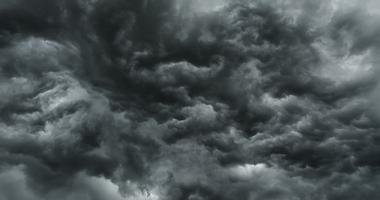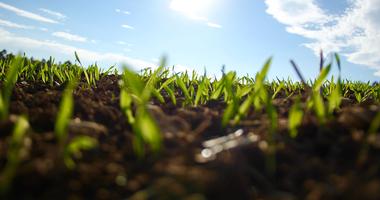
Just Say It: The Climate Crisis is Already Killing Us
If Godzilla were on his way to the United States mainland, how do you think people would react?
Certainly everyone would have seen the destruction the gargantuan lizard inflicted elsewhere, and knowing they don’t want that sort of thing to come ashore here, they’d demand action.
And if they didn’t get the action they know we need, there would be riots in the streets until our leaders acted collectively to stop the monster before it got any closer.
Everyone would be talking about it.
So why isn’t everyone doing the very same thing about the climate crisis? Unlike Godzilla, the climate crisis is very real. But instead of turning into a culture of monster hunters, when it comes to climate, we’re really much more like that meme of the dog sitting amid the flames, declaring, “This is fine.”
But now is not the time for complacency. It’s time for action.
And it’s certainly time to talk about appropriate climate-exacerbated health problems the same way we do extreme flooding or drought – as being the product of our changing climate.
The Monster Among Us
The climate crisis isn’t just about polar bears and sea ice. It is already a public health disaster, putting lives on the line through negatively impacting air quality, diminishing food security, higher risks of infectious disease outbreaks, record extreme heat, drought, and much, much more.
It is a menace to the health of people everywhere. And in some instances, it is literally killing us, at least according to a new report from the international health expert consortium Lancet Countdown.
The report found that heat-related deaths around the world have increased by two-thirds over the last two decades. Two-thirds! Extreme heat elevates the rate of death from illnesses like heart attack, heat stroke, organ failure, and more.
That’s not to mention the lives lost to super-charged tropical storms or devastating drought. Or the infectious diseases that often take up residence in places that have experienced natural disaster.
All of this at a time when only “26 of 193 countries that agreed last year to step up their climate actions have followed through with more ambitious plans,” according to the UN (via The New York Times).
>> Learn More: Climate 101: Climate Change and Infectious Disease <<
Carbon pollution from burning fossil fuels like coal, oil, and natural gas is warming our planet and driving climate change. It’s throwing natural systems out of balance – to often devastating effect – and it’s poisoning our health. And we need to talk about it.
We think of weather disasters as impacting only certain places, usually on the other side of the world – until a hurricane comes along to remind us just how vulnerable we all are.
But public health is universal from the get-go. (Or it should be.) And we’re all at a higher risk of heat-related problems, infectious disease spread, and more the longer this crisis goes unchecked.
And by checked, we have a pretty high bar; what we’re doing now clearly just isn’t cutting it. Learn more about how you can create change by checking out the Our Climate Moment campaign, which focuses on five critical areas of life and business that hold the key to slashing climate changing emissions and transforming the energy systems poisoning our communities: just transition to clean energy, zero-carbon transportation, climate justice and public health, building green communities, and protecting democracy.
How to Stop a Monster
Back to Godzilla, an infamously difficult monster to take out. We can think of one way to get him. He’d fall to the very same thing we need to do to the climate crisis: starve it.
Starve it of the fossil fuel pollution driving it.
>> Free e-book: The Climate Crisis And Your Health <<
That means countries around the world need to take emissions reductions seriously. Those 167 countries mentioned earlier must do more. We might not be able to immediately stop burning fossil fuels for things like electricity and transportation. But we definitely can get on the path to zero-emissions. We have the solutions. All we need is the political will to get there.
The authors of the Lancet report released it just in time for COP 27 in Egypt in hopes that it would serve as a wake-up call to global leaders.
We hope it serves as a wake-up call to everybody, to start thinking and talking about the health impacts of this crisis in the same way they talk about declining glaciers or coral bleaching.
The problem we are dealing with is not going to go away on its own – despite what your uncle says at Sunday dinner, there is nothing natural or cyclical about the climate crisis. We need our leaders to step up to the plate and swing for the fences. No bunting.
Ready to join a network of advocates fighting for better health for people all over the world? Find a Climate Reality chapter near you and sign up. Climate Reality chapters are standing up and speaking out on the threat of the climate crisis – and you can join them.




